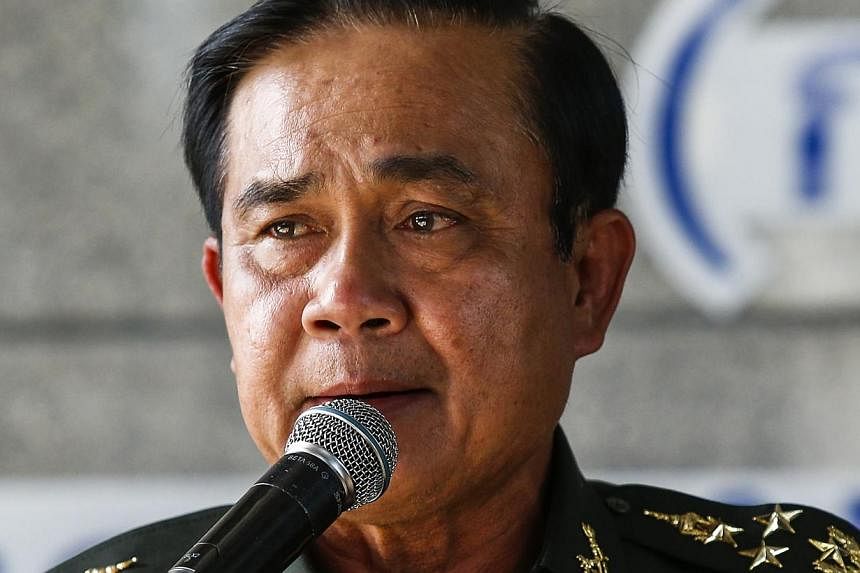|
BANGKOK (AFP, REUTERS) - Thailand's junta will form an interim government by early September to oversee political reforms that will be followed by elections in about one year, the Gearmy chief said on Friday.
General Prayut Chan-O-Cha, who led a May 22 coup that deposed an elected government, did not say whether the cabinet would be made up of civilians or military personnel.
"A new government will be set up in August or the beginning of September," he told officials at a briefing on the 2015 national budget.
"Don't ask me who they are and where they come from," he added.
The junta chief has not ruled out becoming prime minister himself.
The ruling generals have curtailed civil liberties by banning public protests, arresting demonstrators, censoring media and temporarily detaining hundreds of critics for questioning.
General Prayut has ruled out elections for at least a year to allow time for political reforms - including the drafting of a new constitution - which he says are necessary to end almost a decade of political turmoil and street violence.
He urged Thais to "please be patient with me". "I know it's a honeymoon period now but I hope it lasts a bit longer," he said.
The commander-in-chief said it was important for Thailand to have a strong military.
"If we don't have a military, we cannot bargain with anyone. If our military is not strong, no one listens to us," he said.
Critics accuse the junta of using political unrest as an excuse for a power grab by a military-backed royalist establishment seeking to curb the political dominance of fugitive former premier Thaksin Shinawatra.
Thaksin or his affiliated parties have won every election in more than a decade, including in 2011 under his younger sister Yingluck Shinawatra, helped by support among voters in the northern half of the country.
The billionaire tycoon-turned-populist politician was ousted in a 2006 coup and lives in Dubai to avoid jail for a corruption conviction.
General Prayut also said the ruling military council had no immediate plans to maintain a costly state rice subsidy scheme initiated by the ousted government.
"Today, if you ask me, there will definitely be no rice pledging scheme, but whether we have one in the future or not is a different matter," he said.
A state rice-buying scheme was one of the key policies that brought Ms Yingluck to power in 2011. Her rice-buying scheme paid farmers way above the market price for their grain.
Opponents said the scheme ran up huge losses, with farmers owed more than US$2.5 billion (S$3.12 billion) under the scheme.
The programme was a key element in a court ruling that ordered Ms Yingluck to step down last month for abuse of power.
|
